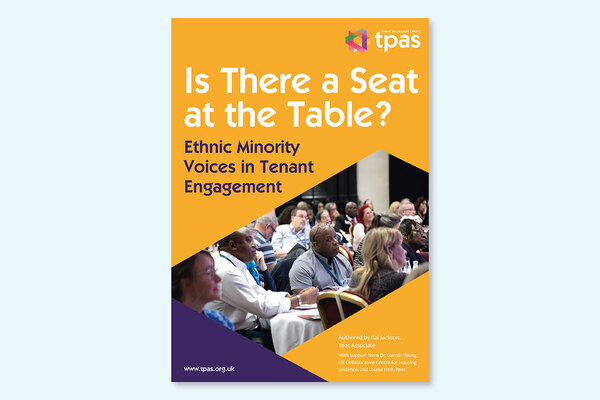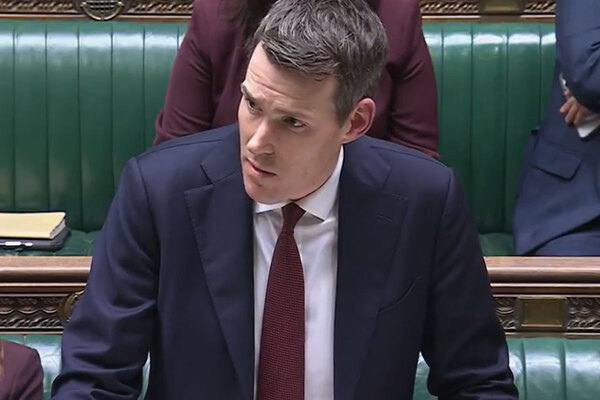You are viewing 1 of your 1 free articles
Universal Credit needs universal co-operation
As cracks in the consensus that Universal Credit is beneficial to claimants appear, the Department for Work and Pensions must co-operate with all partners to ensure the policy is a success, writes Eamon McGoldrick
Until recently, there has been broad political consensus that the concept of Universal Credit is going to help benefit claimants as well as the government.
The idea that up to six single benefits could be processed in one payment seems logical. However, just before the Autumn Budget, Universal Credit was back in the headlines and cracks in the consensus had opened.
Labour moved from pausing further roll-out of Universal Credit to suggesting a review of the whole policy, and a number of Tory MPs were concerned that the Treasury had taken too much funding out of the welfare budget, with the risk that vulnerable households would suffer with the planned acceleration (managed migration), due to commence next year
Department for Work and Pensions (DWP) ministers listened to their backbenches and we saw a number of concessions announced in the Budget on 29 October.
“We at the National Federation of ALMOs have seen a significant shift in how DWP ministers and civil servants have engaged with us.”
These included an increase in the Universal Credit work allowance and a reduction in the amount of the UC award that can be deducted to pay off arrears
Over the past 12 months, we at the National Federation of ALMOs (NFA) have seen a significant shift in how DWP ministers and civil servants have engaged with us, and this is most welcome.
They are keen to learn lessons from the natural migration which has seen 1.2 million claimants move onto UC as at September 2018.
They clearly want to talk to partners and stakeholders on how processes can be amended to maximise take-up and protect the most vulnerable households.
I recently met with Alok Sharma, employment minister, to talk about some of the findings in the NFA welfare reform survey published in July of this year in conjunction with the Association of Retained Council Housing.
This report showed that while the number of UC claimants in rent arrears was slightly down in the year before, it was still high at 72%.
Claimants in arrears owed an average of £520. There was also a significant drop in the number of UC claimants in arrears using alternative payment arrangements to clear their arrears (down from 41% to 29% in 12 months).
Alok Sharma, who was briefly housing minister, had a very good understanding of his new brief and he genuinely wanted to hear from housing professionals on what changes could be made to improve Universal Credit processes. We suggested two simple ideas.
First, the performance of individual DWP offices and job centres varies across the country and our members are aware of which ones are operating efficiently. We will share our experiences of good practice with the DWP so that learning can be shared.
“The DWP could let local authority housing benefit managers know when claimants are due to migrate.”
Secondly, managed migration involves existing housing benefit claimants moving across to UC in large numbers.
The DWP could let local authority housing benefit managers know when claimants are due to migrate, and they in turn could assist with the communication on the changes and offer support/reassurance to claimants.
This is nothing to do with data transfer and more to do with smoothing the transition.
On 17 October, the DWP arranged a managed migration seminar in London and invited more than 60 stakeholders to share ideas on how to improve claimants’ experiences during the managed migration process.
Again, this was a good example of the DWP reaching out and talking to organisations on the frontline.
“There have been a number of concessions over the past 12 months resulting from constructive dialogue with the DWP.”
The DWP has committed to further workshops with stakeholders to look at issues such as identification and support for the most vulnerable people, and how best to communicate and engage with claimants.
The NFA has two asks that are unlikely to be met.
The first is the payment of UC in advance and the second is the option for the claimant to have the housing cost element of their UC award paid direct to their landlord. These requests challenge the architecture of the policy, and we are not hopeful of success on either!
However, there have been a number of concessions over the past 12 months resulting from constructive dialogue with the DWP and we will continue to highlight the impacts of the roll-out on the ground.
If UC is to be successfully implemented, it needs another type of UC – universal co-operation of the DWP and all partners!
Eamon McGoldrick, managing director, National Federation of ALMOs











